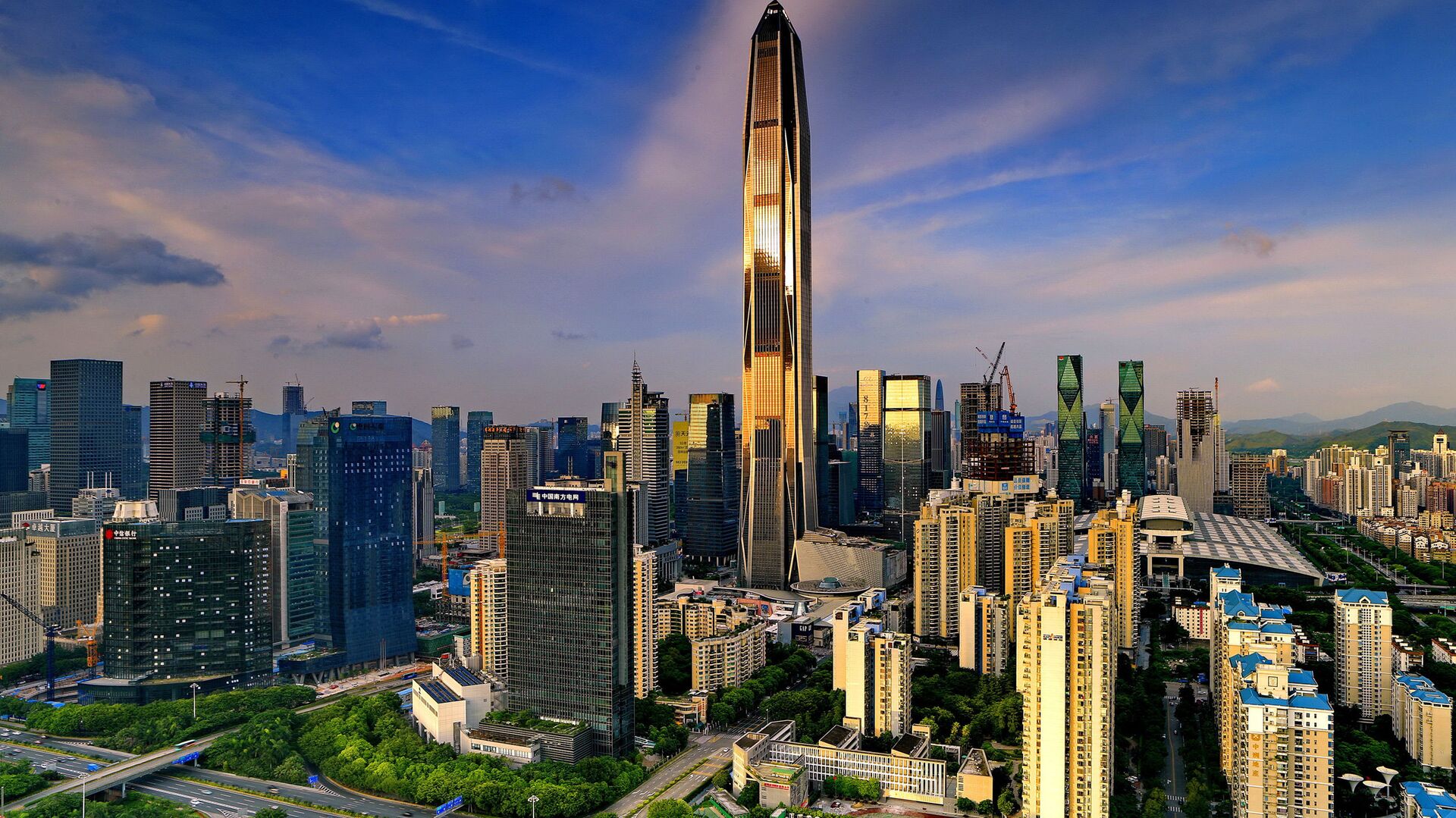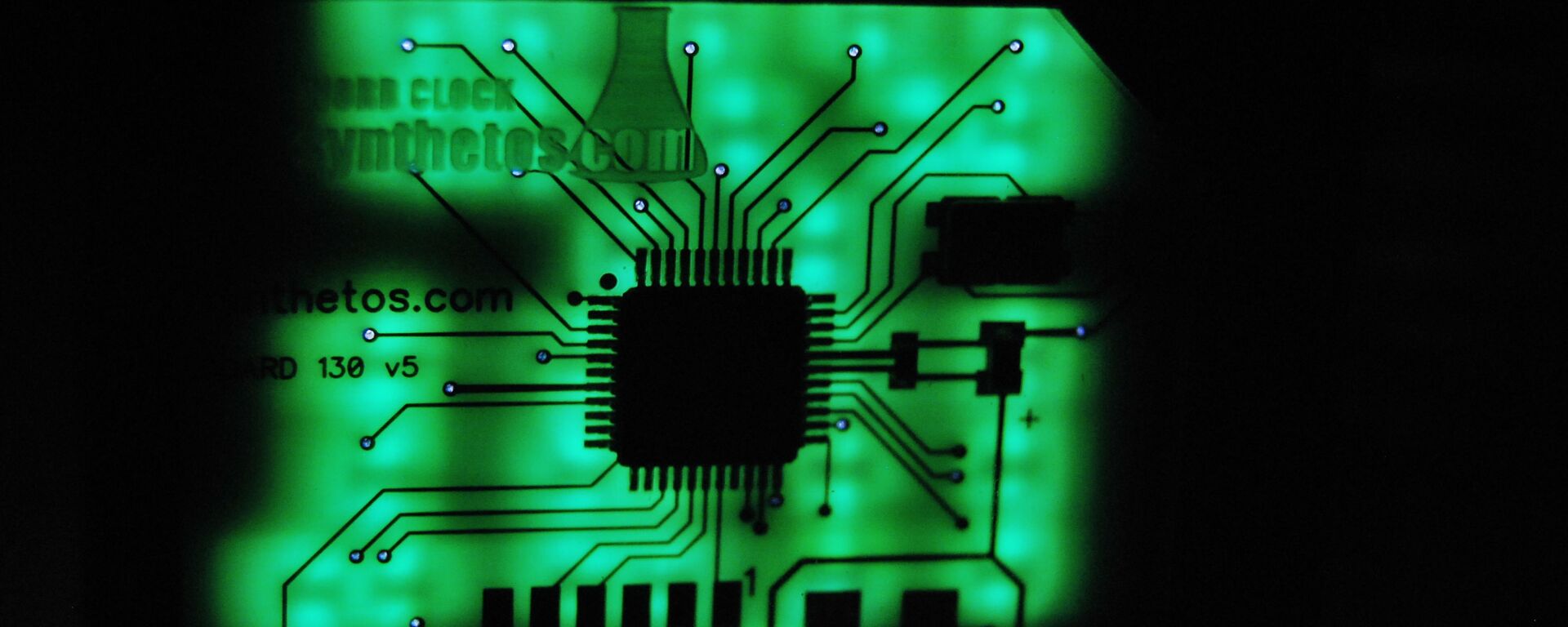https://sputnikglobe.com/20230720/tech-experts-migrate-to-china-due-to-western-pay-to-play-research-culture-1112017062.html
Europe Brain Drain: 30,000 Tech Specialists Move to China
Europe Brain Drain: 30,000 Tech Specialists Move to China
Sputnik International
Experts told Sputnik that Western policies have created a "toxic" work environment for many researchers who are more interested in science than in politics, helping drive their migration to China.
2023-07-20T17:33+0000
2023-07-20T17:33+0000
2023-07-20T17:39+0000
analysis
hainan
china
science & tech
migration
tax breaks
https://cdn1.img.sputnikglobe.com/img/07e4/09/1c/1080596448_0:163:2500:1569_1920x0_80_0_0_7329208a983cc79c31cee6c23ebae229.jpg
A recently released report by the US-based company Strider Technologies accused the People's Republic of China (PRC) of infiltrating Western technology firms and institutions as part of "a machine that facilitates the transfer of European technology and talent to the PRC."The report notes that over the past 20 years, more than 30,000 senior employees at European technology companies have moved to China, in some cases starting up their own firms to compete with their Western counterparts.The Chinese Foreign Ministry rejected the report, telling a US newspaper that Strider "has previously published a series of reports full of false information smearing and attacking China. China's exchange of talent with foreign countries is no different from other countries."Jeff J. Brown, author of The China Trilogy, editor at China Rising Radio Sinoland, co-founder and curator of the Bioweapon Truth Commission, told Sputnik on Thursday that about 40 years ago, "western research became pay-to-play, for-profit and still is."Brown said that a "venal, toxic and revolting work environment" arose in the years since as a result, adding that "is it any wonder Western professors, researchers and scientists are flocking to China, where science is still pure science, the search for truth lives large, and the sociopolitical ambiance is collegial and relaxed?"The steady migration of researchers into China makes sense, given the sociopolitical environment and atmosphere in which grants are given. But despite the fears about a Western "brain drain," Brown noted that "The halls of Western academia and research are still full of professors and scientists."“China pays very well, it is a safe, clean and modern country, with no garbage and transport strikes, no riots; inflation is low and the sky's the limit in terms of basic and applied research, with plenty of a-political, non-commercial grant money,” he noted. “Therefore, where would you like to do your R&D? It’s an easy question to answer.”Thomas W. Pauken II, the author of “US vs China: From Trade War to Reciprocal Deal,” a consultant on Asia-Pacific affairs and a geopolitical commentator, told Sputnik that more Europeans moving to China could be highly beneficial for both regions and lead to greater ties between them at a time that Europe is suffering from its proximity to the United States.However, he noted that in order to coax more European talent to relocate to China, “they have to make it where the Europeans are going to feel comfortable coming and moving to China.”“However, it is important to have European scientists and talents come to China because they have a different cultural mindset and that different cultural mindset can also help Chinese people and Chinese companies have a better understanding of the global markets, as well as the science and tech world outside of China and outside of Asia,” Pauken asserted.Pauken noted the southern province of Hainan has a High-Tech National Industrial Development Zone “where they're trying to encourage a lot of foreigners to work.”"Another benefit they have is a lot of duty-free products go through Hainan, and when they do spend in Hainan, they can get tax rebates as well," he explained. "Europeans don't claim they're interested in money, but you'll be surprised how often the Europeans are the first to ask for special [tax] treatment. Maybe it's because in Europe the taxes are so high, they might be looking for other places to go to improve their living standards and living conditions."Pauken said that while the migration of high-tech specialists to China could have a big impact on the global tech race, there are still significant obstacles to the kind of exchange that Strider claimed was imminent, especially in the field of proprietary information.
https://sputnikglobe.com/20230720/china-launches-4-tianmu-1-meteorological-satellites-into-orbit-1112006545.html
https://sputnikglobe.com/20230704/china-to-restrict-export-of-semiconductor-manufacturing-metals-1111659846.html
hainan
china
Sputnik International
feedback@sputniknews.com
+74956456601
MIA „Rossiya Segodnya“
2023
News
en_EN
Sputnik International
feedback@sputniknews.com
+74956456601
MIA „Rossiya Segodnya“
Sputnik International
feedback@sputniknews.com
+74956456601
MIA „Rossiya Segodnya“
china; tech; migration; hainan; tax break, brain drain, how to migrate to china, why european move to china, scholar move to china, china immigration from europe, china hires westerners
china; tech; migration; hainan; tax break, brain drain, how to migrate to china, why european move to china, scholar move to china, china immigration from europe, china hires westerners
Europe Brain Drain: 30,000 Tech Specialists Move to China
17:33 GMT 20.07.2023 (Updated: 17:39 GMT 20.07.2023) Experts told Sputnik that Western policies have created a "toxic" work environment for many researchers who are more interested in science than in politics, helping drive their migration to China. Beijing could capitalize big on this with more incentives to relocate, but it could bring China and Europe closer together, too.
A recently released report by the US-based company Strider Technologies accused the People's Republic of China (PRC) of infiltrating Western technology firms and institutions as part of "a machine that facilitates the transfer of European technology and talent to the PRC."
The report notes that over the past 20 years, more than 30,000 senior employees at European technology companies have moved to China, in some cases starting up their own firms to compete with their Western counterparts.
Strider CEO Greg Levesque told US media that China "sees leadership in the semiconductor sector as vital to its military and commercial goals and nothing will deter it from pursuing those efforts. Legal and trade barriers in the US will only push them to ramp up operations elsewhere."
The Chinese Foreign Ministry rejected the report, telling a US newspaper that Strider "has previously published a series of reports full of false information smearing and attacking China. China's exchange of talent with foreign countries is no different from other countries."
Jeff J. Brown, author of The China Trilogy, editor at China Rising Radio Sinoland, co-founder and curator of the Bioweapon Truth Commission, told Sputnik on Thursday that about 40 years ago, "western research became pay-to-play, for-profit and still is."
"Before the 1980s, most research grant money in the West came from government sources - agencies and foundations - so there were fewer commercial and ideological strings attached. With Reagan/Thatcher neoliberalism starting in the 1980s, those grants dried up, thus big corporations filled the breach offering funding, but now with, ‘We are paying you and these are the results we want,'" he said.
Brown said that a "venal, toxic and revolting work environment" arose in the years since as a result, adding that "is it any wonder Western professors, researchers and scientists are flocking to China, where science is still pure science, the search for truth lives large, and the sociopolitical ambiance is collegial and relaxed?"
The steady migration of researchers into China makes sense, given the sociopolitical environment and atmosphere in which grants are given. But despite the fears about a Western "brain drain," Brown noted that "The halls of Western academia and research are still full of professors and scientists."
"Most of them are not adventurous enough to pull up stakes and move to China. Nevertheless, there is a feeling that those who do so are among the best and the brightest, more interested in the pursuit of pure science, rather than cranking out papers paid for by Wall Street and Big Pharma."
“China pays very well, it is a safe, clean and modern country, with no garbage and transport strikes, no riots; inflation is low and the sky's the limit in terms of basic and applied research, with plenty of a-political, non-commercial grant money,” he noted. “Therefore, where would you like to do your R&D? It’s an easy question to answer.”
“Given the aforementioned dichotomy between Western and Chinese R&D, Beijing has already won the race. China Tech is unstoppable. It does not need Westerners in their universities and laboratories to achieve ‘Made in China 2025’, but they are nice leavening in the invention and innovation cake.”
Thomas W. Pauken II, the author of “US vs China: From Trade War to Reciprocal Deal,” a consultant on Asia-Pacific affairs and a geopolitical commentator, told Sputnik that more Europeans moving to China could be highly beneficial for both regions and lead to greater ties between them at a time that Europe is suffering from its proximity to the United States.
However, he noted that in order to coax more European talent to relocate to China, “they have to make it where the Europeans are going to feel comfortable coming and moving to China.”
“It's not as easy as some might think it is. What the Chinese government should first focus on is to create some preferential tax treatment and find ways to get companies to offer very rewarding contracts to people who are talented in science and technology. But, we should also be aware that many Chinese are also very good at science and technology and that when the Europeans come here [to China], they could be surprised by the stiff competition they'll have against their Chinese peers,” he said.
“However, it is important to have European scientists and talents come to China because they have a different cultural mindset and that different cultural mindset can also help Chinese people and Chinese companies have a better understanding of the global markets, as well as the science and tech world outside of China and outside of Asia,” Pauken asserted.
"But in order to attract them, they're going to have to find ways of preferential tax treatment, some type of subsidies, easy visa procedures. For example, international schools here in China are very expensive. I know that for sure, because my son goes to an international school. Hopefully the Chinese government can perhaps either allow companies that hire to maybe get tax free treatment on offering education grants to Europeans who have children who could attend international schools here."
Pauken noted the southern province of Hainan has a High-Tech National Industrial Development Zone “where they're trying to encourage a lot of foreigners to work.”
"Another benefit they have is a lot of duty-free products go through Hainan, and when they do spend in Hainan, they can get tax rebates as well," he explained. "Europeans don't claim they're interested in money, but you'll be surprised how often the Europeans are the first to ask for special [tax] treatment. Maybe it's because in Europe the taxes are so high, they might be looking for other places to go to improve their living standards and living conditions."
Pauken said that while the migration of high-tech specialists to China could have a big impact on the global tech race, there are still significant obstacles to the kind of exchange that Strider claimed was imminent, especially in the field of proprietary information.
"If it succeeds, it's going to be amazing for China because they will have a lot more progress and developments in their technologies. And this also could improve trade ties between Europe and China, which right at this very moment is going through some hard times, because the Europeans are too closely aligned with Washington. However, maybe if a lot of Europeans are coming here, this may encourage and inspire Europe to find ways of having deeper cooperation with China."




